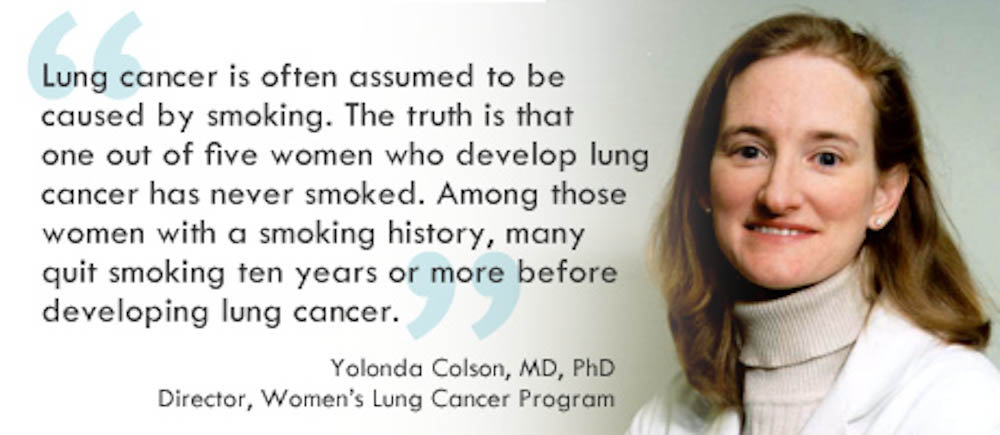This post originally appeared on the Brigham and Women’s Health Hub Blog.
 Lung cancer is the leading cause of cancer deaths among men and women in the United States. For women, it accounts for more deaths than breast, ovarian, and uterine cancer combined. Consequently, medical researchers have been working hard to increase our understanding of lung cancer and help us better prevent, diagnose, and treat the condition.
Lung cancer is the leading cause of cancer deaths among men and women in the United States. For women, it accounts for more deaths than breast, ovarian, and uterine cancer combined. Consequently, medical researchers have been working hard to increase our understanding of lung cancer and help us better prevent, diagnose, and treat the condition.
Learn more:
Among their important discoveries is how the disease differs between men and women, including the facts that women are more likely to develop certain types of lung cancer; women have better overall survival; and although lung cancer is less common in female smokers than male smokers, it is more common in women “never-smokers” than men who never smoked.
However, the most interesting difference is that tumors in women often have unique genetic differences that make them more responsive to certain types of treatment. In the following video, Yolonda Colson, MD, PhD, director of the Women’s Lung Cancer Program at Brigham and Women’s Hospital, discusses these differences in greater detail and the implications of these differences for the future of lung cancer treatment.
Learn more from Colson in the video below:
https://www.youtube.com/watch?v=I88uc8zN0Zw
